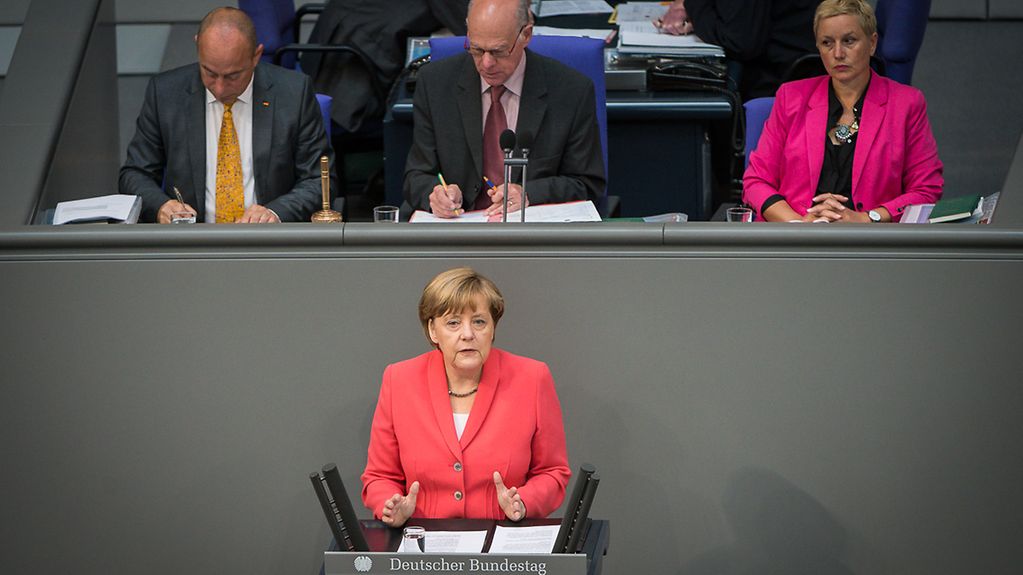Russia/Ukraine
Chancellor Angela Merkel has called on Russia to respect its commitments under the provisions of the Minsk agreements. In a government statement she stressed that this is the only way to resolve the Ukraine conflict at political level.
2 min reading time

Sanctions on Russia are closely linked to the implementation of the Minsk agreements, says Chancellor
Photo: Bundesregierung/Kugler
In a government statement on 18 June, Chancellor Angela Merkel said, referring to the conflict in Ukraine, "I am absolutely convinced that this conflict can only be resolved at political level. The Minsk package of measures clearly points the way forward."
Sanctions on Russia are closely linked to the implementation of the Minsk agreements. "Russia must show that it is acting on the commitments laid out in the agreements," stressed Angela Merkel.
Making it possible to live together in security in Europe
The expansion of Russia’s arsenal of nuclear weapons announced by President Putin is not a helpful contribution, said federal government spokesperson Steffen Seibert.
"We note the reports of President Putin’s statements," said the government spokesperson on 17 June at the government press conference. The underlying facts, that Russia aims to modernise its armed forces "have of course been known to us for some time". The statements of the Russian President are thus not surprising.
We must not allow a return to the Cold War
Federal Foreign Minister Frank-Walter Steinmeier stressed earlier how much the world had changed since 1989. "We are no longer in the Cold War." We no longer have two opposing blocs bristling with weapons in the middle of Europe. But "the old reflexes from this era are more alive that we would have thought even last year".
Frank-Walter Steinmeier warned of the danger of "giving in to reflexes of this sort, and entering an upward spiral of escalation, first verbally and then in actions."
Securing the European peace order
The minister warmed that care must be taken to ensure that as a result of the Ukraine crisis "not everything is pulled down that we built so painstakingly and so carefully in our European peace order after the fall of the Berlin Wall".
At the NATO summit meeting in September 2014 in Wales resolutions were adopted that took seriously the concerns of Eastern European partners. "We are working to translate these into practice without losing our sense of proportion."
Germany in particular is strongly engaged in efforts to resolve the Ukraine crisis. "But this will call for more constructive action from Moscow than we have seen recently," said Frank-Walter Steinmeier.
Russia’s actions contravene the 1997 Founding Act between NATO and the Russian Federation, which regulates cooperation. Germany and its NATO partners aim to uphold the Founding Act unless circumstances change. This was the decision taken at the most recent NATO summit in 2014 in Wales.
The central document is the Readiness Action Plan (RAP). It provides for short-term effective measures being continued beyond 2014 for purposes of assurance. These involve primarily enhancing NATO’s Standing Naval Forces, air policing in the Baltic, AWACS (Airborne Warning and Control System) surveillance flights in the Eastern NATO states and the "ongoing presence" of NATO troops in Eastern member states in the form of more frequent exercises. Recently announced US measures in no way contradict this.